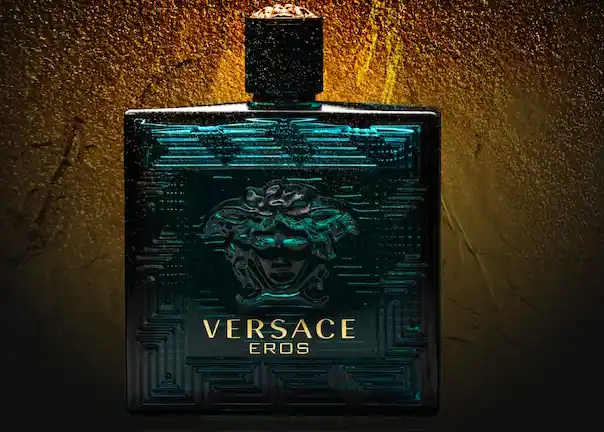We all know that perfumes and men’s colognes contain fragrance. After all, that is what they are for. But what other ingredients are in perfume?
Is there alcohol in cologne and perfume? Yes, cologne does contain a high amount of alcohol. It is the primary ingredient in most men’s and women’s fragrances.
The alcohol used in fragrances is not the same kind of alcohol that people consume. There is a specific type of alcohol that is used in perfumery.
Alcohol Concentration in Perfume And Cologne
The alcohol concentration in cologne can vary widely based on the specific formulation of the product. Typically, though, colognes contain anywhere from 60% to 80% ethanol. The remainder is made up of fragrance oils and sometimes water, which further dilutes the mixture and helps to balance the scent. We also have a cologne concentration guide to learn more about alcohol percentages.
Alcohol concentration in perfumes and colognes:
- Eau Fraiche: 97%-99% alcohol
- Eau de Cologne:94%-98% alcohol
- Eau de Toilette: 85%-95% alcohol
- Eau de Parfum: 80%-90% alcohol
- Parfum: 60%-84% alcohol

Understanding Cologne Composition
Cologne is essentially made up of alcohol, water, and fragrance. The fragrance can be essential oils, absolutes, or synthetic notes. The main ingredient is alcohol. Typically, Perfumer’s Alcohol is used.
The type of alcohol found in cologne is generally ethanol, also known as ethyl alcohol. Ethanol is used because it’s safe for the skin, evaporates quickly, and effectively diffuses the fragrance oils.
When applied, the alcohol quickly evaporates, leaving behind the scent of the fragrance oils on the skin. This evaporation process also helps to initially spread the fragrance when first applied.
Understanding Perfumer’s Alcohol
Perfumer’s alcohol, also known as “specially denatured” alcohol, is a specific blend of ethanol that’s often used in the perfume and cologne industry. It’s called “specially denatured” because it’s ethanol that’s been treated with denaturants—chemical additives—to make it unfit for drinking.
Perfumer’s alcohol is often preferred for fragrance creation due to its unique properties. For one, it’s virtually odorless, making it an ideal carrier for fragrance oils since it won’t interfere with the scent profile. Secondly, it evaporates quickly, allowing the fragrance to be readily released upon application.
Perfumer’s alcohol typically contains additional ingredients such as isopropyl myristate or monopropylene glycol. These substances are emollients that enhance the feel of the perfume on the skin and can help dissolve certain types of fragrance ingredients.
In many countries, specially denatured alcohol is also subject to fewer regulations and taxes than pure ethanol because it’s not consumable, making it a cost-effective choice for perfumers.
So, when you see “alcohol” listed as a top ingredient in your cologne, it’s most likely a reference to perfumer’s alcohol. However, manufacturers are not typically required to distinguish between ethanol and specially denatured alcohol on their ingredient lists, leading to some confusion.
In sum, perfumer’s alcohol is a blend of ethanol and other additives that is widely used in the perfume and cologne industry due to its ability to effectively deliver fragrance without adding any scent of its own.
Are There Colognes Without Alcohol?
While the vast majority of colognes contain alcohol, there are indeed a few colognes that are alcohol-free. These colognes use a substitute carrier oil like jojoba or fractionated coconut oil instead of alcohol. There are also water-based colognes like Nautica Oceans. It uses water instead of alcohol.
These alcohol-free alternatives can be especially beneficial for individuals with sensitive skin, as alcohol can sometimes cause irritation or dryness. However, it’s important to note that oil-based colognes might not have the same level of fragrance diffusion or longevity as their alcohol-based counterparts, given the different evaporation properties of oil.
Are Alcohol-Free Colognes Better?
The choice between traditional alcohol-based cologne and an alcohol-free alternative ultimately comes down to personal preference and skin type. If your skin is easily irritated by alcohol, or if you have ethical or religious reasons for avoiding alcohol, an alcohol-free cologne could be an excellent choice.
However, remember that alcohol in cologne serves a purpose. Its quick evaporation allows for the immediate diffusion of the scent upon application, and it helps to prolong the fragrance’s longevity throughout the day. On the other hand, oil-based colognes may offer a slower, more subtle scent evolution, which could be preferable for some.
Conclusion
In essence, men’s fragrances and perfumes typically do contain alcohol—specifically ethanol—due to its ability to effectively carry and distribute fragrance oils. The alcohol content can be quite high, ranging from 60% to 80%. However, alternatives do exist for those seeking alcohol-free options. These alternatives use carrier oils to dilute and spread the fragrance, which may be gentler on sensitive skin. In the end, the choice between alcohol-based and alcohol-free colognes is a matter of personal preference and compatibility with one’s skin.
